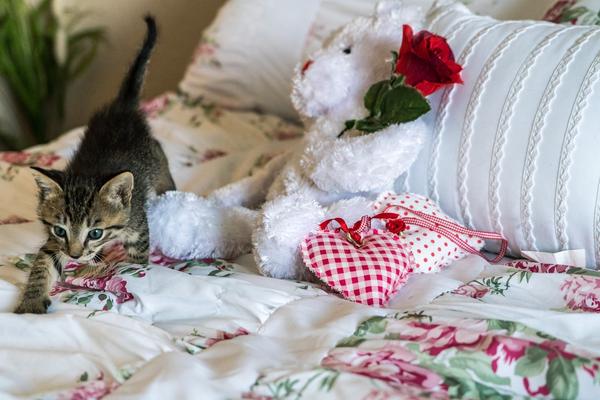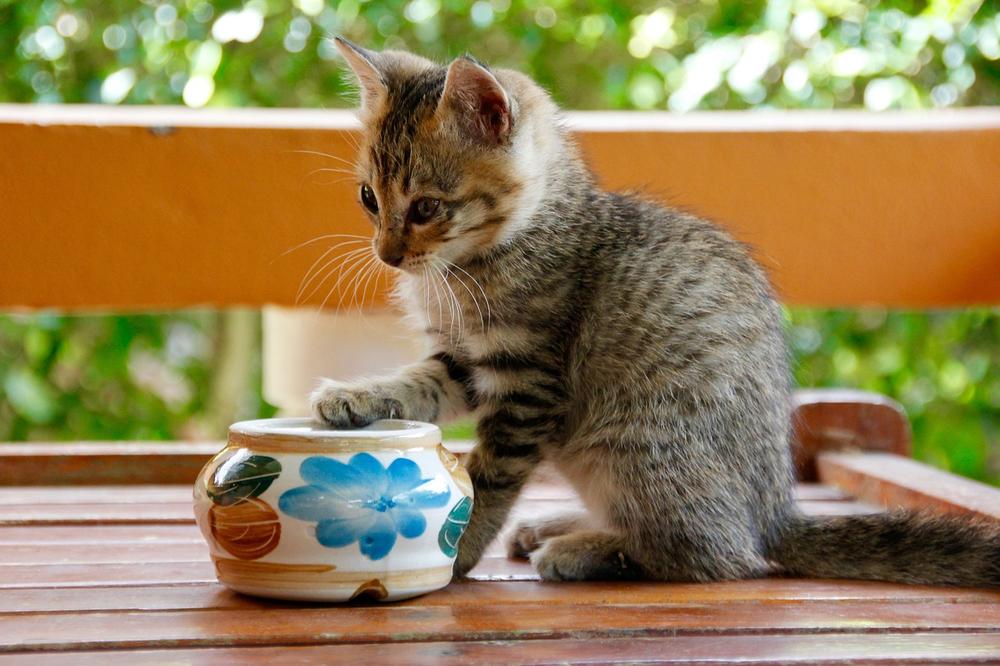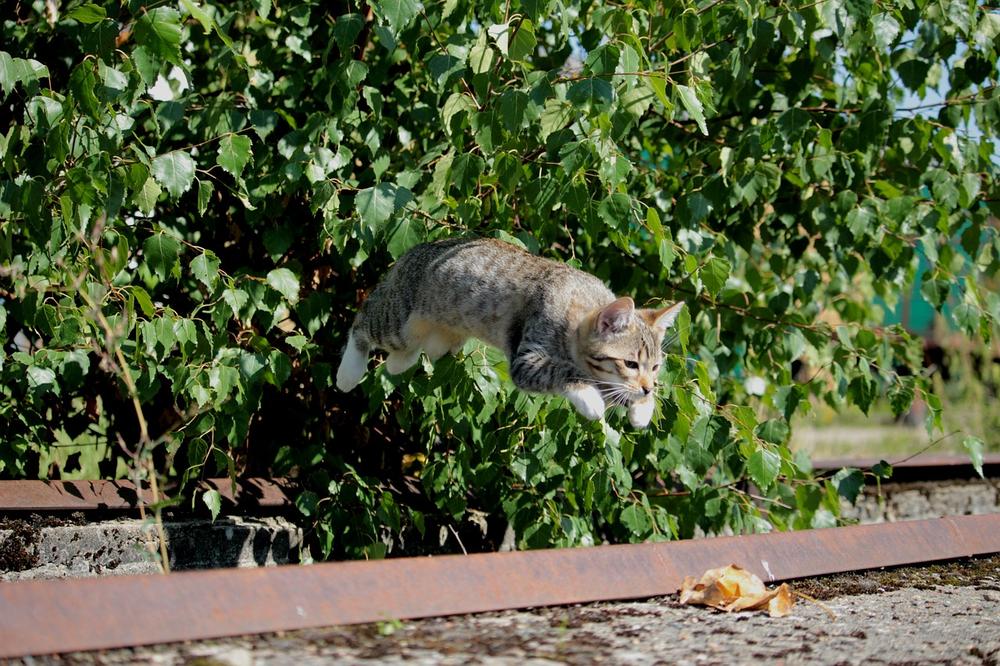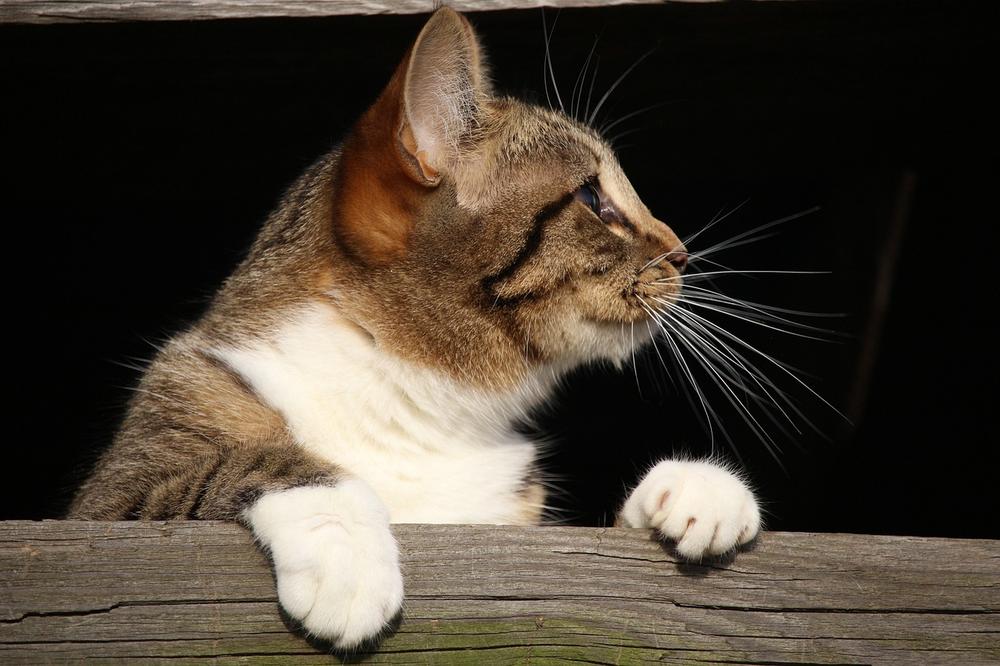How to Get a Newborn Kitten to STOP Crying (Effective Method)

Let's be honest:
Having a newborn kitten that won't stop crying is like listening to nails on a chalkboard, except this time the nails are scratching at your heart. 😢
Your furry bundle of joy is causing a bundle of stress, and it's time to find a solution.
In this I Care for Cats guide, I'll help you calm the storm.
Let's silence those cries together.
Act now!
Tips for Soothing a Crying Newborn Kitten
Newborn kittens can be fussy little creatures, crying uncontrollably.

Don't worry, I've got some tips to help soothe that crying kitten for you:
- Create a warm and cozy environment: Keep the kitten in a small, enclosed space with soft bedding and a low-set heating pad.
- Swaddle the kitten in a soft towel or blanket, imitating the feeling of being snuggled close to its mother.
- Use white noise like a soothing sound machine or calming music to lull the kitten into sleep.
- Give the kitten a gentle massage - just like people, they love it! Stroke their back or rub their belly with your fingertips to help them relax.
- Feeding is key - make sure you feed the kitten every 2-3 hours with Hartz milk or KMR (Kitten Milk Replacer). Each feeding should be about 2-3 ml of milk.
- After each feeding, gently pat the kitten's back until it burps, mimicking how you would do it with a human baby.
These tips will get that crying kitten purring in no time! 😺
Main points I'll expand upon further down this article:
- Newborn kittens meow to communicate their needs.
- Kittens cry a lot after eating until they fall asleep.
- Ensure kittens are free of fleas and urinate regularly.
- Kittens eat every hour or two and double in size within a week.
- Kittens cry due to hunger, pain, or a need for attention.
- Adjusting feeding schedule and quantity may help with weaning.
- Excessive crying after feeding could indicate infection or contaminated milk.
- Provide clean litter box and address potential reasons for crying.
- Teething and painful urination or defecation can cause crying.
- Create a comforting environment, regular feeding, and warmth for kittens.
Understanding Newborn Kittens' Crying Patterns
Here's how you can understand why newborn kittens cry, with 10 handy tips:
- Watch closely how they move and the sound of their cries to figure out what they need.
- Remember that newborn kitties are blind and deaf from birth, so crying is their way of getting your attention.
- After eating, these little ones often cry until they doze off.
- If your kitten keeps crying, check for fleas or any signs of discomfort bothering them.
- Help them pee regularly since they can't do it on their own yet. 🐾
- Keep an eye out for any tummy troubles or bloating issues that might be bothering them.
- These tiny creatures need to eat frequently, usually every hour or two.
- Be aware that newborn kittens can grow in size really fast — they could double within just a week! So make sure to keep an eye on their growth.
- Create a cozy and warm environment where your newborn kitty feels safe and comfortable.
- And if you're ever uncertain about why your kitten is crying, don't hesitate to reach out to a vet for some expert advice.
By keeping these pointers in consideration, you will gain more insight into the vocalizations of your recently born kitten and be equipped to meet their requirements.

But understanding why your newborn kitten cries is just the first step. Now, let's dive into some practical solutions and expert advice that will help you soothe their cries and ensure their well-being.
Trust me, you don't want to miss these invaluable tips...
Common Reasons for Newborn Kittens Crying
Newborn kittens crying can be distressing, but understanding the reasons behind their cries is crucial. Here are some common reasons and how to address them:
- Hunger: Ensure you're feeding your kitten enough and on a regular schedule. Adjust the quantity and frequency as needed.
- Pain: Check for any signs of injury or discomfort. If you suspect pain, consult a vet for proper diagnosis and treatment.
- Attention: Kittens crave affection and interaction. Spend quality time playing with them and providing stimulation to alleviate boredom.
- Mother Absence: Weaning is a challenging phase for kittens. Be patient and offer comfort while they adjust to being away from their mother.
- Infection or Contaminated Milk: Excessive crying after feeding might indicate an infection or contaminated milk. Seek veterinary evaluation if crying persists.
- Emptying Bladder and Bowels: Some kittens have difficulty emptying their bladder or bowels. Gently stimulate these areas with a warm, damp cloth to assist them.
- Clean Litter Box: Ensure easy access to a clean litter box to address any bathroom-related causes for crying.
- Transitioning Formula: Orphaned kittens may require transitioning from goat's milk to kitten formula.
- Poor Growth or Teary Eyes: Consult a vet if your kitten exhibits constant crying, stagnant growth, or has teary eyes, as it could be related to milk intake or illness.
Understanding why newborn kittens cry will help you provide the care and attention they need.
Furthermore, if you are concerned about your newborn kitten crying for its mother and are curious about how long this behavior may continue, I have the perfect resource for you.
In my article titled Kitten Crying for Mom, I delve into why kittens cry for their mother and provide insights on the duration of this behavior.
Don't worry, I've got you covered with all the information you need to ease your worries and understand your kitten better.
Is Your Newborn Kitten in Pain?
When it comes to newborn kittens and pain, keep a close eye on them.

Here's what to watch out for:
- If they seem restless, cry a lot when peeing or pooping, or look uncomfortable while nursing, they might be in pain.
- Teething can make them cry because their gums are swollen and tender. See a vet if you notice this.
- Crying during pooping could mean they're in pain from urinating or having hard stools. Take it seriously!
- Never leave a crying kitten alone; it might have a serious health issue that needs a vet's attention.
- Diarrhea is dangerous for kittens, so go to a vet right away if you see it.
- If a well-fed and warm kitten keeps meowing, it might have a medical problem that a vet needs to check.
- Lethargy or silence could also mean the kitten is sick, so keep a close watch on how they behave.
You have to take charge of your newborn kitten's health and wellbeing. Don't wait for problems to arise.
Curious to know how you can create a calming environment for your newborn kitten?
Keep reading to discover the essential tips and tricks that will help your kitten feel safe, warm, and secure - ensuring their comfort and wellbeing...
Creating a Comforting Environment for Your Newborn Kitten
To create a comforting environment for your newborn kitten, follow these 12 simple steps:
- Set up a designated, quiet space.
- Keep the area free from excessive noise and foot traffic.
- Give your kitten time to adjust to its surroundings.
- Provide a warm and comfortable space.
- Use a basic box with soft blankets.
- Use a heated water bottle wrapped in cloth for warmth.
- Feed every two to three hours using an oral syringe and nipple attachment.
- Use kitten powdered formula for feeding.
- Use a rice sock and heating pad for regulating body temperature.
- Use soft fleece squares as soothing pacifiers.
- Keep the kitten's private areas clean with a moist cloth if necessary.
- Maintain the environment at around 97 degrees Fahrenheit.
Newborn kittens need extra care and attention during their first days of life.
But what if creating a comforting environment isn't enough to stop your newborn kitten from crying?
Don't worry, I've got some solutions that will keep both you and your fuzzy friend happy and content!
Dealing With Newborn Kitten Separation Anxiety
Dealing with newborn kitten separation anxiety is tough.

You gotta figure out what they need and give them the comfort they're looking for.
Here's five helpful tips to help you calm their nerves:
- Give 'em a warm, cozy spot where they can feel safe. A soft bed or blanket will do the trick.
- Play with 'em using interactive toys like feathers or balls. It'll distract 'em from feeling lonely and keep 'em entertained.
- Try positive reinforcement training to boost their confidence and ease their anxiety.
- Don't scold 'em if they cry too much. That'll just stress 'em out more. Show 'em love and reassure 'em instead.
- Slowly introduce 'em to new stuff so they can build up resilience. This exposure helps 'em learn how to handle being separated.
Just like us, newborn kittens need time to adjust and feel secure.
So be patient, understanding, and give 'em gentle support during this emotional period.
And that wraps up today's article.
If you wish to read more of my useful articles, I recommend you check out some of these: Old Cat Peeing Everywhere, Pregnant Cat Keeps Meowing, Why Wont My Cat Stop Meowing in Her Cage, Cat Not Using Litter Box After Giving Birth, and Elderly Cat Yowling
Talk soon,
-Sarah Davis